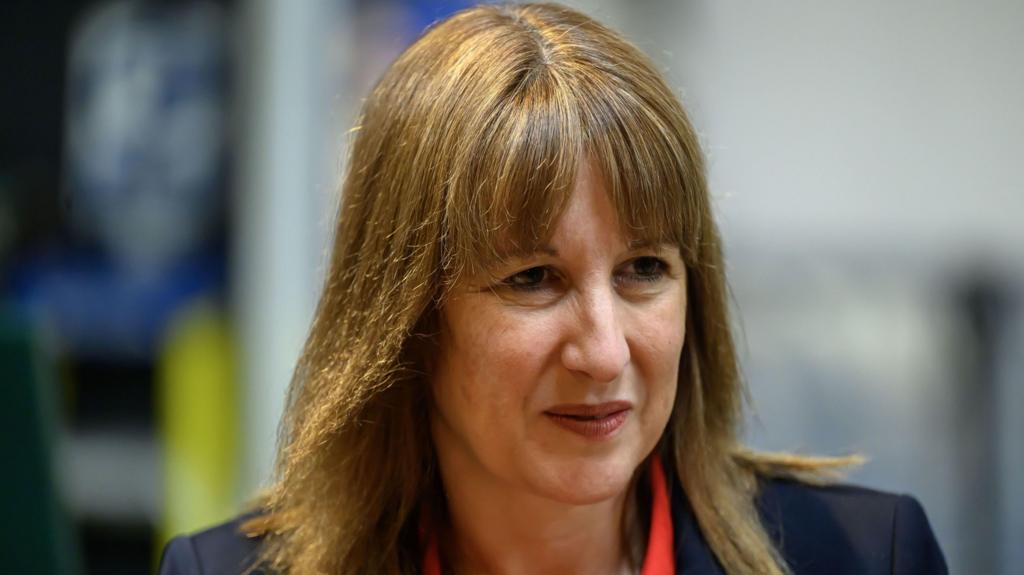“`html
Chancellor Rachel Reeves has declined to rule out a potential increase in income tax in the upcoming Budget, fueling speculation about a possible departure from a key Labour election promise.
When questioned about reports, initially published by The Guardian, indicating active Treasury discussions on raising the rate, Reeves stated she would “continue to support working people by keeping their taxes as low as possible.”
Reeves’s refusal to dismiss a rise should not be interpreted as a certainty, as Chancellors typically avoid confirming or denying specific tax measures prior to a Budget announcement.
However, her carefully chosen words contrast with previous statements made in September, where she affirmed that “manifesto commitments stand” regarding no increases to income tax, National Insurance, or VAT.
Labour’s 2024 general election manifesto explicitly pledged not to raise “the basic, higher, or additional rates of income tax.”
The party also committed to avoiding increases in National Insurance, a promise that generated controversy last autumn when a hike in employer contributions was announced.
Speaking to journalists in Leeds on Friday, Reeves commented: “Although I can’t discuss individual measures at this stage, I understand that the cost of living remains people’s top concern.”
She further stated her aim to “ensure that we continue to support working people by keeping their taxes as low as possible” while acknowledging that she was still “going through the process” of drafting her Budget.
She also noted that while the recent inflation figures “came in better than expected,” there was “obviously much more to do.”
The Chancellor has suggested a potential focus on wealthier individuals in the Budget, stating that “those with the broadest shoulders should pay their fair share.”
Recent reports indicate that officials are exploring a range of measures, including potential tax increases on partnerships used by legal and accounting professionals.
However, economists suggest that such measures will be insufficient to address the government’s financial shortfall, placing pressure on Reeves to consider more politically challenging options.
The Institute for Fiscal Studies (IFS), a respected think tank, suggests that Reeves will “almost certainly” need to raise taxes to cover a £22 billion gap in government finances.
This shortfall stems from the Office for Budget Responsibility’s (OBR) decision to downgrade productivity forecasts, effectively eliminating much of the £10 billion “headroom” that Reeves had allocated in the spring statement.
According to the Office for National Statistics, government borrowing – the difference between public spending and tax revenue – reached £20.2 billion in September, the highest level for that month in five years.
While effective interest rates on UK government debt have declined significantly, Reeves faces limited flexibility in meeting her self-imposed fiscal rules without raising taxes.
These rules mandate that her plans must project a decrease in government debt as a proportion of national income by 2029-30, and that day-to-day government expenses must be financed by tax revenue rather than borrowing.
If Reeves implements an income tax increase, it would mark the first such rise since 2010, when the Labour government introduced a 50% additional rate on incomes exceeding £150,000, which was subsequently reduced to 45% by the coalition government.
Currently, income tax is levied on earnings above the personal allowance of £12,570, which is tax-free.
The basic rate of 20% applies to income between £12,571 and £50,270, while earnings from £50,271 to £125,140 are taxed at the higher rate of 40%. Income above £125,140 is subject to the additional rate of 45%.
These thresholds are applicable to most taxpayers in England, Wales, and Northern Ireland, while Scotland operates a separate system.
The Guardian reported that Treasury officials are engaged in “active discussions” regarding the possibility of adding 1p to the basic rate of income tax, which could generate over £8 billion, in addition to exploring increased higher rates for top earners.
The basic rate of income tax has remained unchanged since the 1970s.
Sign up for our Politics Essential newsletter to stay informed about the inner workings of Westminster and beyond.
The cost of living is always important, but this month’s data has a particular extra impact for millions of people.
However, the cost of items such as red meat and chocolate has continued to rise.
UK Inflation has fallen from record highs but remains above the Bank of England’s 2% target.
Three and a half million low-paid workers across the UK benefit from minimum wage rates.
Prices rise slower than expected in the year to September while the chancellor hints at help in the Budget.
“`

